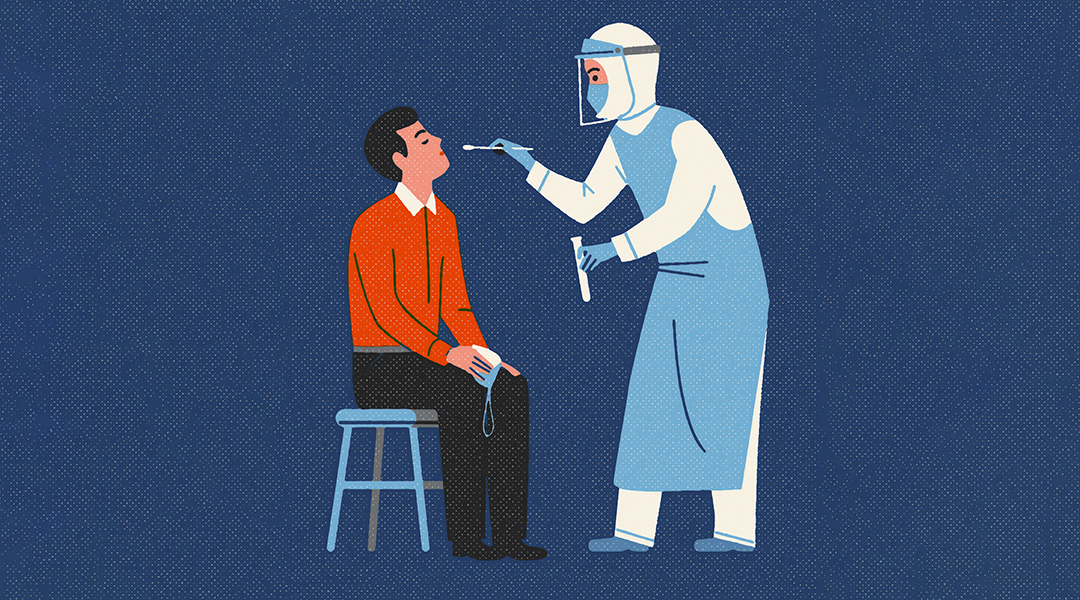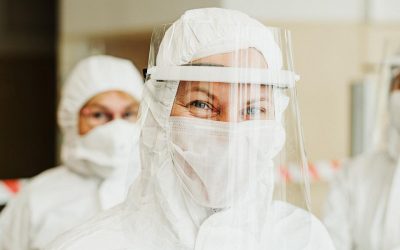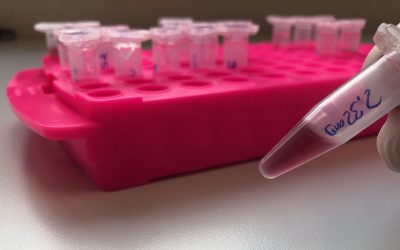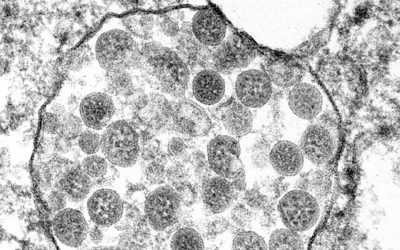Image credit: United Nations
“This pandemic is a stark reminder of the divide that exists in countries without universal health care, between those who can afford health care and those who cannot and may be forced into poverty as a result.” In a recent essay written by Dr. Erwin Khoo from the International Medical University in Kuala Lumpur, Malaysia, and Dr. John Lantos of Children’s Mercy Hospital, Kansas City, USA, the two grapple with the societal effects of the COVID-19 pandemic and what this means moving forward.
In addition to highlighting numerous weaknesses already present in our society, the current COVID-19 pandemic caused by the SARS-CoV-2 virus has forced citizens, healthcare workers, and politicians around the world to face some daunting ethical decisions that were unprecedented on such a global scale even a few months ago.
“I feel that these sorts of ethical dilemmas have always been present in our society,” said Khoo in an email. “However, news around topics such as resource allocation did not hit headlines until now.
“There will always be limitation to funding, especially when it is for entities deemed less beneficial to the society or for those that have no apparent means to an end,” he added. “There is also a limit to any country’s budget; government must spend money on […] other crucial sectors. In my article, I gave an example of how funding orphan drugs is limited [because they treat conditions that are so rare and the market is so small], few companies pursue them just because it is ‘not worth it’ in the end. Perhaps only the wealthy countries can [at the moment] afford to fund this area of research.”
This and many other examples highlight the sobering fact that “sadly, we live in a world that allows people to die when it costs too much”. This is evident in countries where its citizens don’t normally have free access to lifesaving treatment, which was further exacerbated by the current pandemic.
A study published by the nonprofit organization West Health and Gallup as part of a series on the rising cost of healthcare in the U.S., reported that one in seven Americans said they would avoid seeking medical care if they experienced key symptoms associated with COVID-19 out of fear of the potential cost. This is alarming as not only are these people not able to get the care they need, but this also raises concerns about undocumented cases and spread of infection if social distancing and lockdown measures are not properly adhered to.
The pandemic has also highlighted the preparedness of hospitals in handling the tidal wave of infected COVID-19 patients, while also managing regular care. Difficult resource allocation decisions have had to be made such as deciding who gets a ventilator or an intensive care bed — essentially deciding who gets to live or die.
“Resource allocation decisions generate conflicts and mixed sentiments for both healthcare providers and the general public,” said Khoo and Lantos in their essay. “Moral distress affects all of us and must be respected and openly discussed. Such moral distress is a healthy sign, not a pathologic one. It means that we are trying to do the right thing, know that sometimes we cannot, yet must go on.”
What Khoo and Lantos argue is that these decisions are unavoidable given the current state of healthcare in some countries, but what we should strive for is transparency and allocating resources and care according to the ethical principles of utility and equity.
Utility requires allocating resources to maximize benefits and minimize burden while equity requires the fair distribution of benefits and burden. “Health equity is an ethical concept based on the principle of distributive justice,” they wrote. “While an equal distribution of benefits and burdens may be considered fair, it may be fairer to give preference to groups that are more vulnerable. There is no easy solution to resolve potential tensions between utility and equity, but a balanced consideration between both is crucial.”
They continue that decision‐making tools need to be developed to ensure that no person receives better or worse treatment due to his or her social status to avoid unintended discrimination during pandemics. “Survival should not be based on wealth,” added Khoo, “but as we can see, this will not be addressed until a ‘minimum’ point, which can perhaps be translated to extending access to healthcare as widely as possible and setting minimum standards for all, is reached.”
While health professionals must deal with decisions about the allocation of scarce resources that can eventually cause moral distress and affect one’s mental health, the COVID-19 pandemic is also creating a considerable degree of uncertainty and fear, which, coupled with quarantine and its effects on loneliness, depression, and substance abuse, has exacerbated the mental well-being of many people outside the realm of healthcare.
And while mental health is significant and will be a lasting effect of the current pandemic, it is perhaps not being given the attention it deserves. “I do not think it is given enough priority,” said Khoo. “Everyone must pay attention to their emotional well-being and the well-being of those we care about. Awareness is important, and we tend to lose sight of it because of its ‘invisibility’ and indistinctness, [especially in these unprecedented times].”
There will also be the lasting impact of those who are stereotyped as being disease carriers. “Racism and discrimination lead to chronic stress,” wrote Khoo and Lantos. “They are barriers in realizing the principles of equality, a core principle of human rights. The rights to non‐discrimination must remain central to all government responses. We must advocate countermeasures to address widespread stigmatization that have adverse public health impact.”
Finally, decisions around opening up economies, especially in countries where COVID-19 cases are still not yet under control has raised some ethical questions on balancing the health of the economy vs. people. “While we focus on saving lives, an economic collapse is a catastrophic health risk, too,” wrote the authors. “Access to health care will be a heightened concern for those in economic hardship, especially as the pandemic brings additional risks for less secure workers. There needs to be more investment in public health in all economies particularly in less developed countries where healthcare systems are less developed and population density is high. Ultimately, we want to avoid the dilemma of affordability when a cure is found.”
While the lasting implications of the pandemic are yet to become fully apparent, Khoo and Lantos underscore the importance of working together as an international community “to collaborate, coordinate, share lessons learnt and help one another”.
“Although we witnessed solidarity during lockdowns, we must be mindful of the gap between social acceptance and ethical acceptability,” added Khoo. “Following the current pandemic, I hope we will work together for the good of [humankind] and remember that until every country is safe, no country will be safe.”
Reference: Erwin Khoo, John Lantos. ‘Lessons learned from the COVID‐19 pandemic,’ Acta Paedeatric Nurturing the Child (2020). DOI: 10.1111/apa.15307

















